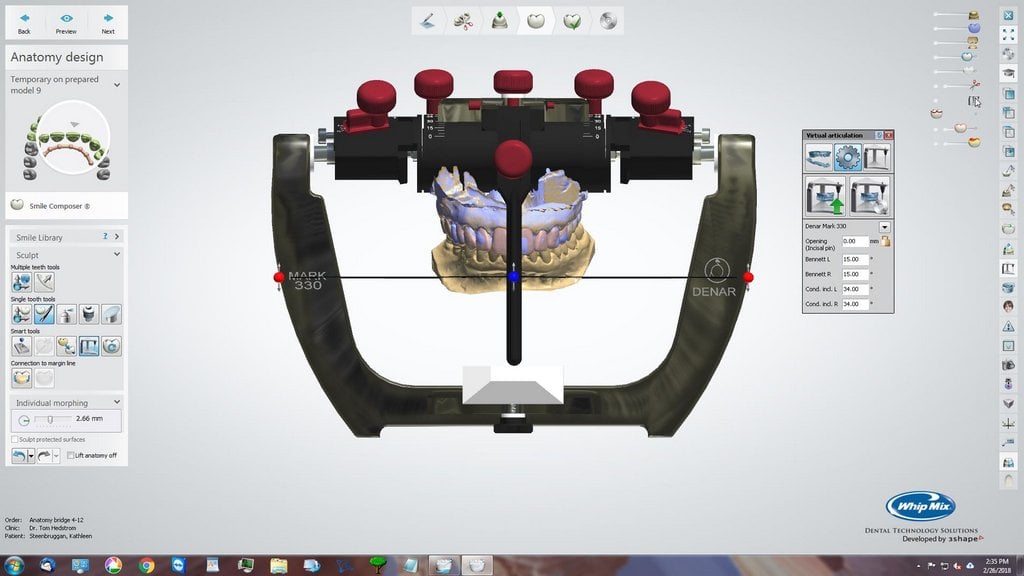As a company, Whip Mix has its name in over 70 dental schools across the US, Canada and Puerto Rico. Whether your school orders a Hanau, Denar or Whip Mix articulator, you’re aware of terms like calibration, interchangeability, and repair service. As we travel from school to school to provide annual service checks on instrumentation, we see the wear and tear an articulator can experience in a 4-year period called dental school. Some of the wear and tear is normal and can easily be cleaned up and fixed and some cannot. To keep your articulators in the best shape, sometimes all that needs to change is the way they are cleaned and maintained.
Steam
The first place most students go to clean an articulator is the steam cleaner. I strongly advise against the use this machine as a way of cleaning articulators, as steam cleaning will lead to surface cracks and corrosion. My suggestion would be to place signs next to all steam cleaners in your school advising against the use of this machine as a cleaning mechanism. For the same reasoning, I also suggest that students be told that submerging an articulator/facebow in water will also lead to corrosion. My favorite cleaning tool; baby wipes. They are non-abrasive and clean very well.
Stick
Stickiness is next; some students think that Vaseline or like products would be an excellent way to keep instrumentation lubricated. Free-moving parts is good, right? Yes, and no. It is ok to put a lubricant on a mounting plate surface so that clean-up is easier. We suggest a thin coat and then we recommend wiping the excess away when complete. However, these type lubricants should not be used in ball joints (ex: QuickLock Toggles) or condylar joints on tracking articulators. To clean a ball-joint area, I recommend using alcohol and a Q-tip. To lubricate the condylar housing, Lubriplate can be applied in a small dosage.
Spray
Last, but not least is spray. It is imperative to disinfect the products prior to use on a patient and we understand that. I always recommend that if your school uses a disinfectant spray, spray to a clean cloth before wiping the instrument down or spray on the instrument and wipe excess off. We want to avoid a ‘pooling’ of spray on the instruments because if it dries in a large amount, it could clump, which could lead to stiff movements.
While I have specifically talked about maintaining and cleaning articulators in a dental school setting, these tips and tricks can be applied to any dental professional that uses articulators & facebows.
For more tips on the dos and don’ts of cleaning, feel free to contact us.











.png)
Leave a comment